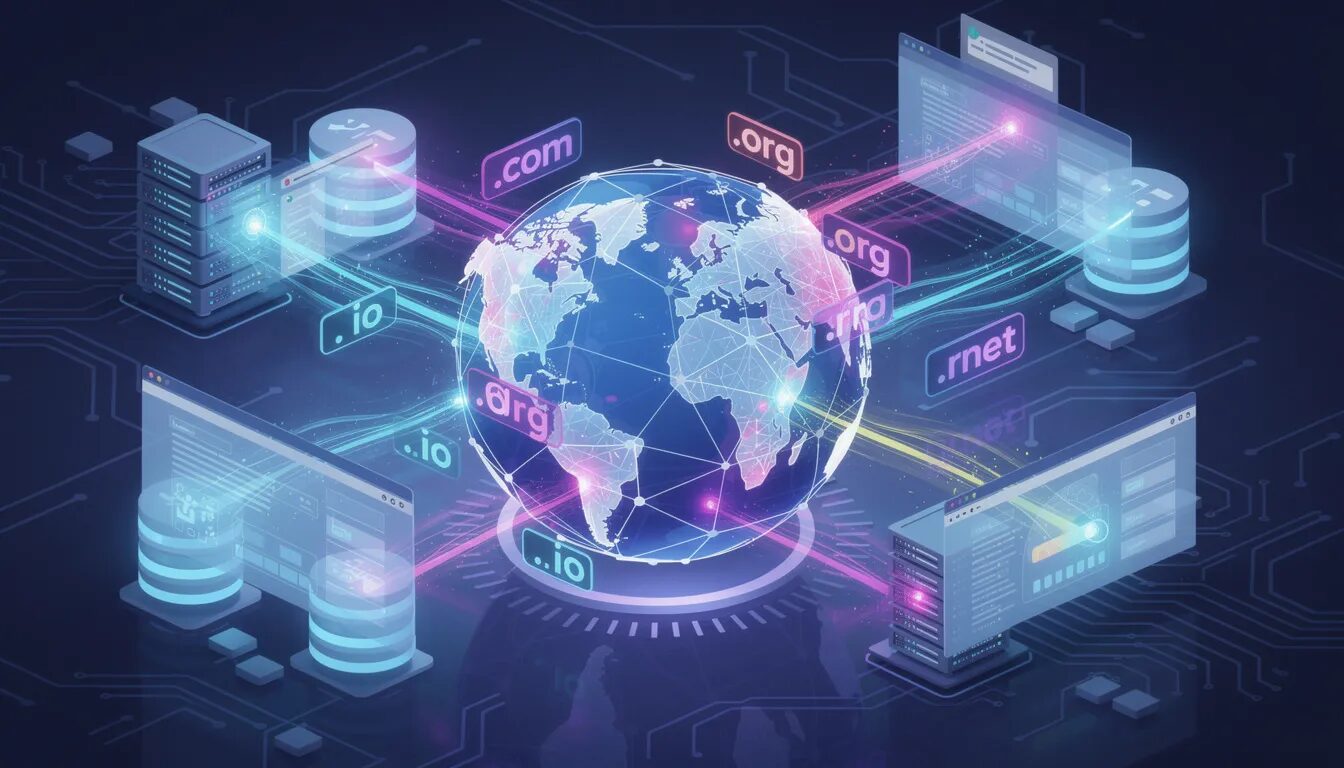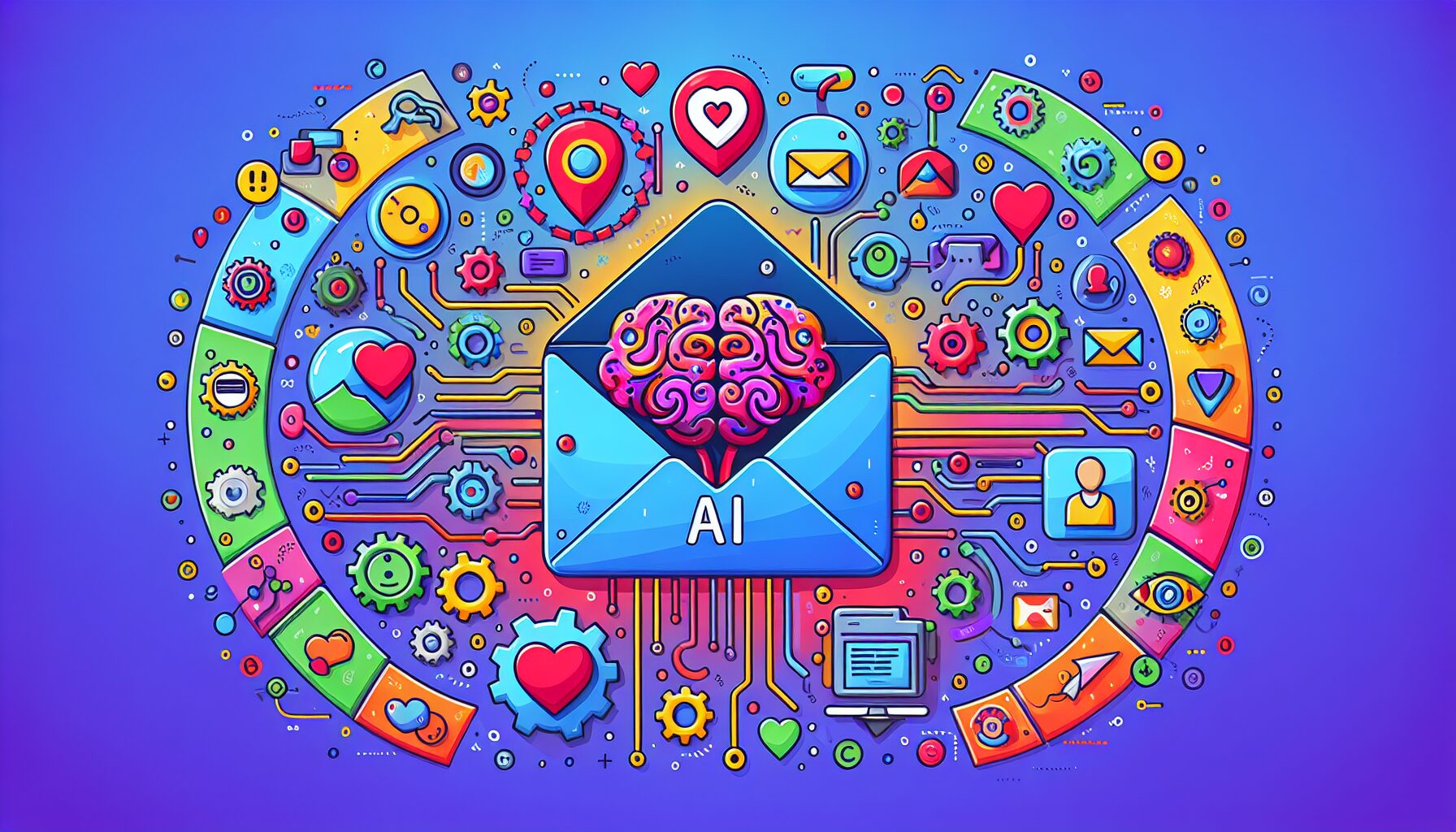
Top Trends in the Future of Email Marketing AI for 2025
AI is set to revolutionize email marketing by 2025. The future of email marketing AI will bring advanced personalization, smarter automation, and improved customer engagement. This article delves into these changes, showcasing the key trends and innovations you need to watch.
Key Takeaways
-
AI will enhance email marketing in 2025 through advanced personalization techniques, including dynamic content and predictive analytics, to improve customer engagement.
-
Automated features, such as A/B testing and trigger-based campaigns, will streamline email marketing efforts and optimize user interactions, increasing overall campaign effectiveness.
-
Ethical considerations in AI application, such as data privacy, transparency, and bias mitigation, will be crucial for building trust and maintaining customer loyalty in AI-driven email marketing.
AI-Powered Personalization in Email Marketing
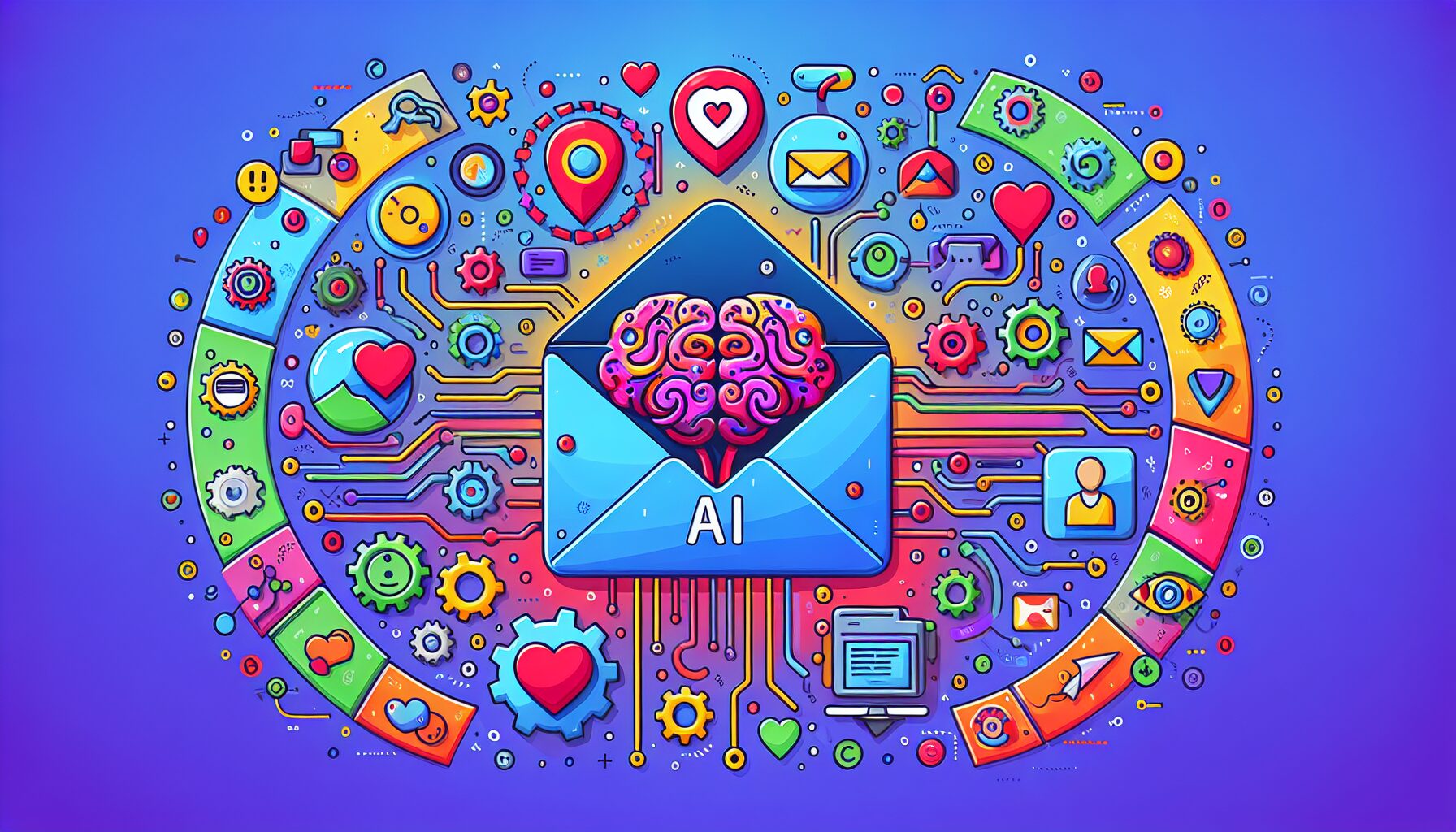
AI’s integration in email marketing is fundamentally changing how campaigns are created by enabling personalized approaches based on data analysis. In 2025 AI-driven techniques will offer more sophisticated personalization, enabling marketers to craft experiences tailored to individual user interactions. This is achieved through the use of machine learning algorithms that tailor email content, schedule sends, and segment audiences effectively, leading to enhanced customer engagement and loyalty.
AI-powered personalization significantly boosts customer satisfaction by providing tailored marketing experiences. As AI technologies evolve, catering to individual preferences will become more refined, making each email feel uniquely crafted for the recipient.
Key trends in AI-powered personalization include advanced segmentation, dynamic content generation, and predictive analytics.
Advanced Segmentation
Advanced segmentation is an emerging trend in AI-powered email marketing. Enhanced analytical capabilities from AI allow more precise targeting and personalization, ensuring marketing messages resonate with specific audience segments.
This new era of segmentation lets marketers fully utilize data analysis, enhancing customer engagement through highly relevant content.
Dynamic Content Generation
Generative AI revolutionizes email content creation by rapidly generating various content versions, enabling marketers to efficiently cater to distinct customer segments. This technology ensures that each recipient receives content that feels personalized and engaging, enhancing user interactions and overall engagement. AI technologies like Midjourney can generate high-quality images from simple text prompts, adding a personalized visual element to emails and significantly boosting recipient engagement. AI-generated content saves time and allows continuous learning and adaptation based on user feedback.
AI-driven email builders enable marketers to create responsive designs that dynamically adapt to user interactions. This capability ensures that emails remain relevant and engaging, regardless of how recipients choose to interact with them.
Utilizing AI to personalize both text and visual elements, marketers create compelling digital experiences that resonate deeply with their audience.
Predictive Analytics
Predictive analytics allows marketers to anticipate customer behavior and tailor communications accordingly. By analyzing extensive datasets, AI can identify patterns in user behavior, such as purchase frequency and product preferences, to enhance marketing strategies. This data-driven approach uses machine learning algorithms to predict customer interactions with emails, enabling more effective targeting and personalization.
The ability to predict customer behavior through data analysis is a game-changer for email marketing. Leveraging insights from browsing history, purchase history, and past interactions, marketers create highly personalized email content that speaks directly to the recipient’s needs and preferences. This approach enhances engagement and builds stronger customer relationships by consistently delivering relevant and timely messages.
Enhancing Customer Engagement with AI
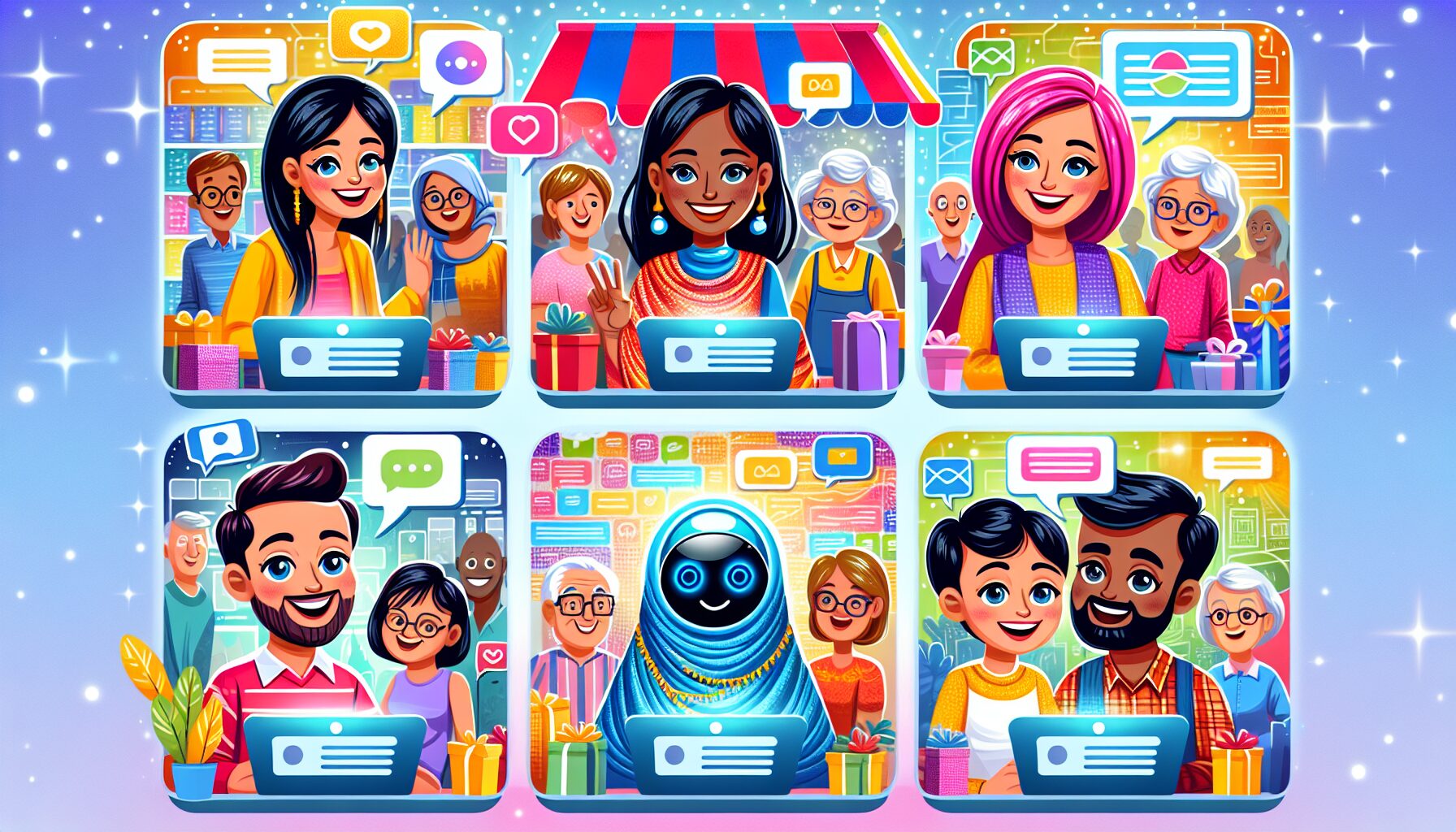
AI is revolutionizing email marketing by enhancing automation and improving engagement through personalized content. Machine learning algorithms analyze customer behavior, allowing AI to significantly enhance email engagement and overall marketing performance. This transformation is not just about automating processes but also about making them more creative and effective. Transparent AI systems also play a crucial role in building trust, as customers feel valued and more likely to engage with brands that use AI ethically and transparently.
AI-driven personalization curates content that aligns with individual preferences, enhancing cross-channel marketing experiences. Integrating email marketing with other business systems provides deeper insights into the customer journey, enabling more cohesive and effective strategies.
AI enhance customer engagement through behavioral analysis, automated A/B testing, and real-time personalization.
Behavioral Analysis
AI’s predictive analytics capabilities enable marketers to anticipate customer behaviors, optimizing engagement through timely and relevant communications. Analyzing vast amounts of user data allows AI to understand and predict customer behavior, leading to more targeted and effective email campaigns. This integration of AI in behavioral analysis transforms how marketers engage with their audience, making campaigns more effective and personalized.
Analyzing historical engagement patterns and predicting future behaviors is a key advantage of AI-driven behavioral analysis. This approach enables precise segmentation and targeting, ensuring marketing messages are timely, resonant, and impactful. Understanding user behaviors allows marketers to create campaigns that truly connect with their audience.
Automated A/B Testing
Automated A/B testing is a significant advancement brought by AI in email marketing. AI generates different email versions and analyzes their performance to pinpoint the most effective content. This automation speeds up the decision-making process in marketing campaigns, allowing marketers to quickly identify which email variations perform better. Automating the A/B testing process with AI helps optimize email content and subject lines, leading to improved engagement rates.
AI’s ability to test various email components, such as subject lines and content, ensures continuous refinement of strategies. This method saves time and enhances the overall effectiveness of email campaigns, ensuring the best-performing content reaches the audience.
Automating A/B testing with AI leads to more efficient and successful marketing efforts.
Real-Time Personalization
Real-time personalization enhances customer engagement. AI adjusts email content instantly based on immediate user actions and contextual data, making communications highly relevant and engaging. This approach allows brands to deliver tailored content instantly, reacting to user actions like clicks or views in real-time, improving engagement.
Leveraging real-time personalization ensures messages are always timely and highly relevant, significantly boosting customer satisfaction and loyalty.
AI-Driven Automation in Email Campaigns
AI enhances the efficiency of email marketing campaigns by automating various tasks, allowing marketers to focus more on strategy and creativity. Automation optimizes and streamlines communications, ensuring messages resonate well with the target audience. Utilizing AI increases the efficiency of campaigns, reducing the time required for execution.
AI-driven automation in email marketing significantly improves campaign management and execution.
Workflow Automation
AI automates routine tasks in email marketing, such as list management and content scheduling, enabling marketers to concentrate on higher-level strategies and creative initiatives. This capability saves time and ensures seamless campaign execution, allowing marketers to focus on crafting compelling messages and achieving strategic goals.
Trigger-Based Campaigns
Trigger-based campaigns use AI to send emails automatically based on specific user behaviors or significant events, increasing engagement. Setting up campaigns that respond to user actions like website visits or cart abandonment improves engagement rates and ensures timely communication.
This approach ensures emails are relevant and delivered at the most opportune moments, enhancing their effectiveness.
Enhanced Drip Campaigns
AI optimizes the timing and content personalization of follow-up emails in drip campaigns. Analyzing user interactions allows AI to send personalized follow-ups at the right moments, increasing the relevance and effectiveness of each communication.
Intelligent personalization ensures recipients receive content that resonates with their interests and behaviors, enhancing engagement.
Improving Deliverability and Open Rates with AI
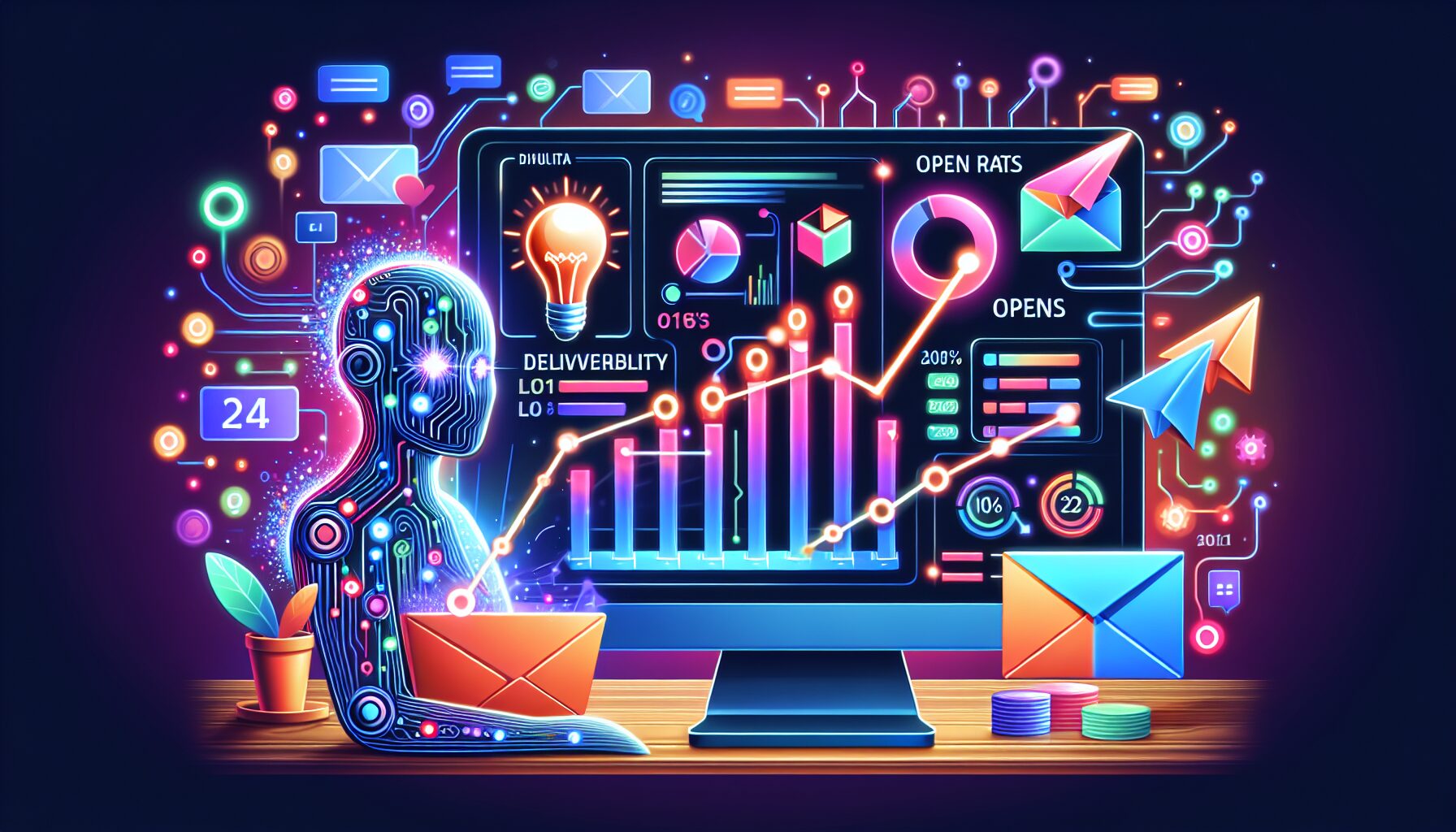
AI plays a crucial role in improving email deliverability and open rates by enhancing sender reputation and optimizing content. Enhancing sender reputation through simulated real interactions helps AI ensure emails reach the inbox instead of going to spam. Optimizing email content to bypass spam filters increases the chances of successful delivery.
AI improves deliverability and open rates through spam filter avoidance, optimal send times, and subject line optimization.
Spam Filter Avoidance
AI tools generate emails that mimic human behavior, helping to bypass spam filters and enhance inbox placement chances. Crafting emails that adhere to best practices and reducing the likelihood of being flagged by spam filters ensures higher inbox placement rates.
This capability is essential for maintaining a high deliverability rate and ensuring marketing messages reach their intended audience.
Optimal Send Times
AI analyzes user behavior patterns to determine the most effective times for sending emails, maximizing open rates. Utilizing user engagement data, AI identifies peak times for sending emails, significantly improving open rates. This predictive capability ensures emails are sent when recipients are most likely to engage, enhancing overall campaign performance.
Subject Line Optimization
AI creates multiple subject line variations and tests their performance to identify which options yield the highest engagement rates. Generating and testing various subject lines helps AI determine which versions achieve the highest open rates.
This analysis leads to more effective email marketing by ensuring subject lines are optimized for maximum engagement.
Ethical Considerations in AI-Powered Email Marketing
Ethical AI application in email marketing involves using the technology responsibly, respecting user privacy, and ensuring transparency. Clear communication about data usage and obtaining explicit consent builds trust with customers.
Ethical concerns in AI email marketing include data privacy compliance, transparency and trust, and mitigating bias in AI algorithms.
Data Privacy Compliance
Privacy concerns arise from the collection of vast amounts of data. Compliance with privacy laws and robust security protocols are essential for maintaining customer trust.
Marketers must handle data responsibly and transparently, adhering to privacy regulations to protect user information.
Transparency and Trust
Transparency in AI marketing practices fosters trust between brands and their customers. Customers are more likely to engage positively with personalized content when they understand how their data is being used.
Companies achieve transparency by clearly communicating their data handling practices and how AI personalizes user experiences, leading to stronger customer loyalty and long-term relationships.
Mitigating Bias in AI Algorithms
Identifying biases in AI algorithms ensures that email marketing practices are fair and do not discriminate against any group. Regular audits and ongoing monitoring of AI outputs are essential to identify and reduce algorithmic bias.
This ensures machine learning algorithms treat all customer segments equitably, promoting ethical marketing practices.
The Role of AI in Email Design and Creativity

AI transforms the landscape of email marketing by enabling more dynamic and personalized design elements. AI enhances email design by enabling personalized layouts and content based on recipient preferences. Generative AI will transform how industries produce human-like content, providing high-quality creative content, including text, images, videos, and music.
The role of AI in email design and creativity includes template optimization, visual content creation, and interactive emails.
Template Optimization
AI streamlines the customization of email templates, improving engagement rates through personalized layouts. By analyzing recipient preferences and behaviors, AI can create dynamic templates that resonate more with the audience, thereby enhancing overall engagement.
Visual Content Creation
AI technologies are increasingly being utilized in generating visual content, such as tailored images and videos, aimed to enhance email marketing campaigns. Automation of visual content generation through AI allows marketers to create varied and engaging images and videos without manual effort, ensuring that each piece of content is relevant and captivating.
Personalization of visual content is crucial as AI can analyze user data to tailor images and videos according to recipients’ user preferences and behaviors. This leads to better engagement rates, as recipients are more likely to respond positively to visuals that resonate with their individual tastes.
Interactive Emails
AI enables the development of interactive elements in emails, fostering greater user engagement and participation. The incorporation of interactive elements can lead to improved click-through rates and overall user satisfaction.
As technology advances, the capabilities of interactive emails and emerging technologies are expected to grow, creating even more dynamic experiences for users.
Future Outlook: AI Trends in Email Marketing

AI’s rapid growth is reshaping email marketing strategies, with the market projected to reach over $107 billion by 2028. Generative AI is expected to revolutionize industries that mimic human-created work, including content writing and image synthesis.
This section speculates on future AI trends in email marketing, focusing on integration with other technologies, the evolution of AI capabilities, and personalized experiences beyond email.
Integration with Other Technologies
AI is revolutionizing how users interact with technology, including voice-activated platforms. The integration of advanced voice recognition capabilities can enhance user engagement in email campaigns by allowing hands-free interactions, reflecting a significant trend in artificial intelligence technology.
Evolution of AI Capabilities
Advanced data analytics powered by AI enables marketers to analyze vast datasets, uncovering insights into customer behavior that were previously unattainable. Utilizing machine learning algorithms allows for more precise audience segmentation, improving marketing precision and effectiveness. AI enhances automation capabilities by implementing trigger-based campaigns that automatically respond to specific user actions.
With the integration of AI, email marketing processes are streamlined through workflow automation, allowing marketers to allocate more time to strategy. Predictive analytics utilizes AI to forecast user behaviors, helping marketers deliver highly tailored and relevant content. The advancements in AI capabilities will significantly shape the future of email marketing by enhancing engagement, optimizing campaigns, and fostering customer relationships.
Personalized Experiences Beyond Email
AI will facilitate cross-channel integration by aligning marketing strategies across various digital touchpoints, creating a seamless customer experience. Future advancements in AI technologies are expected to enhance data interoperability, allowing businesses to connect insights from multiple channels for cohesive marketing. AI-driven personalization strategies will adapt to consumer behavior, resulting in tailored experiences that resonate across various channels.
Through behavioral analysis, AI can predict customer preferences and improve engagement by offering relevant content at critical moments. Real-time personalization techniques will enhance customer interaction by dynamically adjusting content based on immediate actions. The continuous evolution of AI capabilities will redefine marketing personalization, emphasizing the importance of a cross-channel approach for future success.
Summary
The landscape of email marketing is being transformed by AI, bringing about significant enhancements in personalization, engagement, and automation. From advanced segmentation and dynamic content generation to predictive analytics and real-time personalization, AI technologies are enabling marketers to create more effective and engaging campaigns. As we move into 2025, the integration of AI in email marketing promises to continue evolving, offering even more sophisticated tools and techniques to connect with audiences in meaningful ways.
In conclusion, staying abreast of these AI trends is crucial for marketers looking to maintain a competitive edge. By embracing AI’s capabilities and addressing ethical considerations such as data privacy and bias, businesses can harness the full potential of AI to create personalized, engaging, and ethical email marketing strategies. The future of email marketing is bright with AI, and those who adapt will undoubtedly lead the way in creating impactful customer experiences.
Frequently Asked Questions
How does AI enhance email marketing personalization?
AI enhances email marketing personalization by utilizing machine learning algorithms to customize content, optimize send times, and segment audiences based on individual interactions and preferences. This targeted approach improves engagement and conversion rates.
What are the benefits of AI-driven automation in email campaigns?
AI-driven automation in email campaigns enhances efficiency by streamlining tasks like list management and content scheduling, allowing marketers to concentrate on strategic initiatives. This results in improved engagement and overall effectiveness of campaigns.
How does AI improve email deliverability and open rates?
AI enhances email deliverability by optimizing sender reputation and avoiding spam filters, while also improving open rates through effective subject line generation and testing. This targeted approach ensures that your emails reach the intended audience more successfully.
What ethical considerations should be taken into account with AI-powered email marketing?
It’s essential to prioritize data privacy compliance, be transparent about how data is used, and actively mitigate bias in AI algorithms to uphold ethical standards in email marketing. These considerations foster trust and fairness in your marketing efforts.
How will AI shape the future of email marketing?
AI will significantly enhance email marketing by improving data analytics and enabling advanced personalization, ultimately leading to more effective and seamless cross-channel customer experiences. This transformation will make marketing strategies more efficient and relevant.
Are you interested in finding out more? Browse the rest of our blog for other marketing tips. If you’re ready to create your first email, survey, sign-up form, or landing page then register for a free trial to get the tools you need to build powerful marketing campaigns!
© 2024, Vertical Response. All rights reserved.
